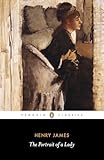The audiobook community audibly mourns the passing of one of its giants, Anthony Hollander, or “One-Take Tony” as he was known in the business. Whether narrating an epic, farce, or cozy mystery, his recordings all started the same: a clearing of the throat, a deep breath, and then the gruff-but-good-natured command to Scop, his dog, to vacate the studio. Hollander would then set to work reading, without interruption, one of the thousands of books he recorded over his career.
“I’ve been reading since I was four years old. So why would I need multiple takes?” he told an interviewer in 2010.
The sound of his gravelly baritone has transported readers from Hardy’s Wessex to Garcia-Marquez’s Macando. A more controversial figure than Flo Gibson, his longtime rival (and, some rumored, lover), he will be remembered not only for his recordings—including the definitive version of The Adventures of Huckleberry Finn—but also for the narratorial intrusions that delighted and frustrated audiences in equal measure. There was a Rabelaisian energy to Hollander’s recordings, and indeed his eructations (frequent), flatulence (intermittent) and snores (rare) were as recognizable to devoted fans as his voice.
Hollander was an unpredictable reader, a narrator-as-critic. He grunted upon reading overwrought sentences, paused to deride mixed metaphors, and, in one particularly infamous episode, launched ad hominem attacks: “Who wrote this crap?” he could be heard on the recording of [redacted]’s latest novel. “Look at this author photo. Figures.”
He permanently alienated David Foster Wallace fans by interrupting Infinite Jest to take a phone call. “Hello? No I haven’t thought about solar panels. Oh? I can sell my excess electricity back to the power company? That’s interesting. Look, I’m narrating a book right now but can I get back to you? OK, send along the info. Now where I was? Oh yes…”
Hollander once claimed that, had audiobook fame not been thrust upon him, he would have been a detective. Mystery fans did not appreciate his tendency to breezily dismiss clues (“Obvious red herring”) and to identify, often accurately, the killers before they were revealed (“Murderer written all over him”). The Crime Writers’ Association, incensed after Hollander had ruined one too many P.D. James plot twists, sponsored a short-story contest in his (dis)honor: the prize going to the most ingenious mystery imagining his murder.
In Hollander’s defense, he offended across genres. Henry James scholars bristled at his vulgar commentary on Isabel Archer and Caspar Goodwood, “Just fuck him already,” which earned his recording of The Portrait of a Lady a rare NC-17 rating.
According to his autobiography, Sounding Myself, Hollander discovered the transfixing power of his voice during grade-school reading exercises. “My stentorian delivery put the other toddlers to shame, their snotty fingers inching along the page as they hazarded one quavering syllable at a time,” he wrote in his memoirs, the audio version of which was read by Jeremy Irons. (“The one mortal whose voice I envy.”)
An audiobook talent scout discovered Hollander after hearing him summon a waiter for the check in his local North Carolina diner. His first taping was of Tom Wolfe’s The Electric Kool-Aid Acid Test, during which he got up and said, “I’ve got to take a piss” about 10 pages in. The director, feeling the interruption jibed with Wolfe’s freewheeling gonzo journalism, kept the tape rolling, thus ingraining in One-take Tony his lifelong habit.
Hollander was an autodidact, and some critics held it against him. They snottily observed that it was all well and good to record a book in one take, provided one could actually pronounce the words. Though many an author, editor, and listener attempted to correct him, Hollander never could quite master pronouncing “bough” or “draught” in the heat of the moment, and consistently mangled all French words—emboinpoint and décolletage causing him particular consternation. And yet these flubs endeared him to listeners, who saw in Hollander a relatable everyman: “Ama-nu-ensis? What the hell is an amanuensis? I know I’ve seen that word somewhere.”
Hollander’s vocal range could accommodate several character types—dainty, dangerous, homespun—but differentiation wasn’t his strong suit. Minor characters confused him. “Wait, who is that guy again? Is that the cousin or the friend from college? No, the cousin died. Or was he the gardener?”
In a controversy that threatened to derail his career, Hollander could be heard pleasuring himself while reading Philip Roth’s Sabbath’s Theater. (Thankfully he was alone in the studio, having long served as his own producer, director, and sound engineer.) The stigma lingered for years. During negotiations to narrate 50 Shades of Grey, he was forced to agree to the humiliating stipulation that he record the erotic thriller with his hands tied behind his back. (“All the kinkier,” he would write in Sounding.)
Certain authors refused to have their novel read by Hollander, especially during his later years, when, having “become allergic to nature scenes,” he started derisively glossing over descriptive passages: “Sky, weather, pathetic fallacy, yada yada yada.”
Hollander died where he belonged, in the recording studio, narrating a debut novel that, judging from the absence of naps, bathroom breaks, and crusty asides, he seemed to thoroughly enjoy. Perhaps too thoroughly. On his final recording, the fatal heart attack—a disturbing, yet still mellifluous, groan—can be heard in the middle of Chapter 5, right before Jeremy Irons graciously takes over.
Image credit: Unsplash/Claus Grünstäudl.
The post In Memoriam: Anthony “One-Take Tony” Hollander appeared first on The Millions.
from The Millions https://ift.tt/2UfkR3i






Comments
Post a Comment